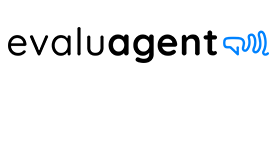Chris Mounce at EvaluAgent explores five innovative strategies to enhance contact centre training, ensuring it becomes more engaging, relevant, and impactful for agents and teams alike.
The success of a contact centre hinges not just on the technology it employs, but on the effectiveness of its coaching and training programs.
As the frontline of customer interaction, contact centre agents require ongoing support and development to deliver exceptional service and drive customer satisfaction.
Yet, many organizations struggle to keep their training programs engaging, relevant, and impactful. Fortunately for you, we’ve got five ideas for you to try out. Let’s dive in.
1. Peer Coaching and Mentorship Programs
Peer coaching and mentorship programs don’t just promote a collaborative and supportive environment, they also offer a number of benefits for both the mentor and the mentee – not to mention your organization as a whole!
For the mentee, there’s accelerated learning. Newer agents get up to speed more quickly by learning from the practical experiences of more experienced agents.
It also boosts confidence – having a go-to person for questions and guidance means new hires can achieve better performance more quickly. Mentees can also benefit from tailored advice and feedback, which are more impactful than generalized training sessions.
For the mentor, their skills are reinforced. Teaching and training is one of the best ways to solidify our knowledge. Acting as a mentor also helps experienced agents develop leadership and coaching skills, preparing them for future leadership roles.
When implementing a program like this, make sure you keep in touch regularly. The last thing you want is for mentees to be picking up bad habits from a mentor. Be sure to provide training on how to coach effectively, including active listening, giving constructive feedback, and setting achievable goals.
2. Collaborative Feedback and Improvement Loop
How much of a say do your agents have in the QA process? Agents can often feel disengaged and undervalued because they’ve got very little involvement, which can result in low morale, high turnover, and inconsistent quality.
They might also feel that the feedback they receive is too rigid, not actionable, or not timely, making it difficult for them to improve their performance.
A collaborative feedback and improvement loop is a structured process where agents actively participate in the QA and coaching methods used.
This approach involves collecting regular feedback from agents and integrating their insights to refine and enhance these practices.
By involving agents in this continuous improvement cycle, you can demonstrate that you value agent input, fostering a sense of ownership that can enhance engagement and satisfaction.
You can use structured feedback mechanisms, like surveys, after coaching sessions or at regular intervals, to gather specific, measurable feedback on QA and coaching processes. You could also introduce a suggestion box, showing that feedback in all its forms is welcome.
Appeal processes for quality evaluations are also a great idea – if a QA result is incorrect or lacking clarity, shouldn’t there be a way for this to be challenged? Many allow for team leaders to appeal on agents’ behalf, but why? What message is that sending to agents – their voice doesn’t matter?
QA should be completely inclusive to get the best value – the more agents know, the more they contribute, the more they understand.
3. Performance Improvement Programs (PIPs)
Performance Improvement Programs, or Personal Development Plans, or Performance Action Plans. Whatever you call them, they do the same thing: they strike fear into the hearts of agents because the business feels they’re not performing in their job and they’re being punished for it.
That, of course, isn’t the intention behind PIPs. The idea is to give a clear, structured approach to addressing performance issues and ensure that the agent receives targeted support and resources.
The program should outline specific, measurable goals and expectations, giving the agent a clear understanding of what’s required to improve.
With the development being more focused, the agent can develop the skills and behaviors needed to meet performance standards. Continuous monitoring and regular feedback sessions help them keep track of their progress and make any necessary adjustments in real time.
And by the end of it, a successful PIP can lead to improved performance and increased confidence.
Be aware, though, that there’s a bit of a reputation issue with PIPs. In fact, many agents see these as almost disciplinary, a precursor to being sacked.
That isn’t what you want, so be sure to use your performance data to identify underperformance early and proactively address issues before they become problems.
Involve the agent in developing their plan – let them get a sense of ownership and commitment and schedule regular checking to discuss progress and feedback.
Any achievements, milestones or improvements should be positively reinforced. Celebrate them and ultimately help the agent to feel like an active participant in their own development.
4. Scenario-Based Coaching
Scenario-based coaching for agents offers a training experience that closely mimics real-life challenges. By developing detailed, realistic customer scenarios, agents can engage in hands-on practice that prepares them for the complexities of their role.
These scenarios can encompass a wide range of situations, from handling irate customers, to troubleshooting technical issues. It allows agents to develop a versatile skillset.
During these sessions, encourage agents to navigate through the scenarios, make decisions, and solve problems as they would in actual customer interactions. This practical approach not only boosts their confidence, but also helps them internalize effective strategies and best practices.
Scenario-based coaching also highlights the importance of adaptability and quick thinking, which are crucial in a dynamic contact centre environment.
After each scenario, provide detailed feedback with analysis of the agent’s performance, highlighting strengths and areas for improvement.
Discussing alternative approaches and strategies that could have been employed also gives agents a broader perspective and build their problem-solving toolkit.
This reflection and discussion phase is important, as it turns the coaching session into a rich learning experience, encouraging agents to think critically about their actions and decisions.
5. Self Evaluation & Reflection
Allow agents to assess their own customer conversations before a coaching session. This will create an environment where self-awareness and accountability become a vital part of the learning process.
Self-evaluation lets agents take on a more proactive role by critically analyzing their customer interactions – and they’re far more likely to be critical of themselves than an evaluator ever will.
Even so, when they’re reflecting on their own calls, they become more mindful of their behaviors and techniques, which can lead to more deliberate and effective customer interactions.
This approach helps bridge any gaps between the agent’s perception of their performance and the coach’s observations. The result? A mutual understanding and trust between agent and coach, and ultimately, better performance.
Implementing effective coaching and training strategies in your contact centre is crucial for maintaining high levels of performance and customer satisfaction.
By adopting different strategies, you can ensure your team remains motivated, knowledgeable, and ready to handle any customer interaction with confidence.
This blog post has been re-published by kind permission of EvaluAgent – View the Original Article
For more information about EvaluAgent - visit the EvaluAgent Website
Call Centre Helper is not responsible for the content of these guest blog posts. The opinions expressed in this article are those of the author, and do not necessarily reflect those of Call Centre Helper.
Author: EvaluAgent
Reviewed by: Rachael Trickey
Published On: 17th Sep 2024 - Last modified: 22nd Oct 2024
Read more about - Guest Blogs, Chris Mounce, EvaluAgent






 EvaluAgent provide software and services that help contact centres engage and motivate their staff to deliver great customer experiences.
EvaluAgent provide software and services that help contact centres engage and motivate their staff to deliver great customer experiences. 








